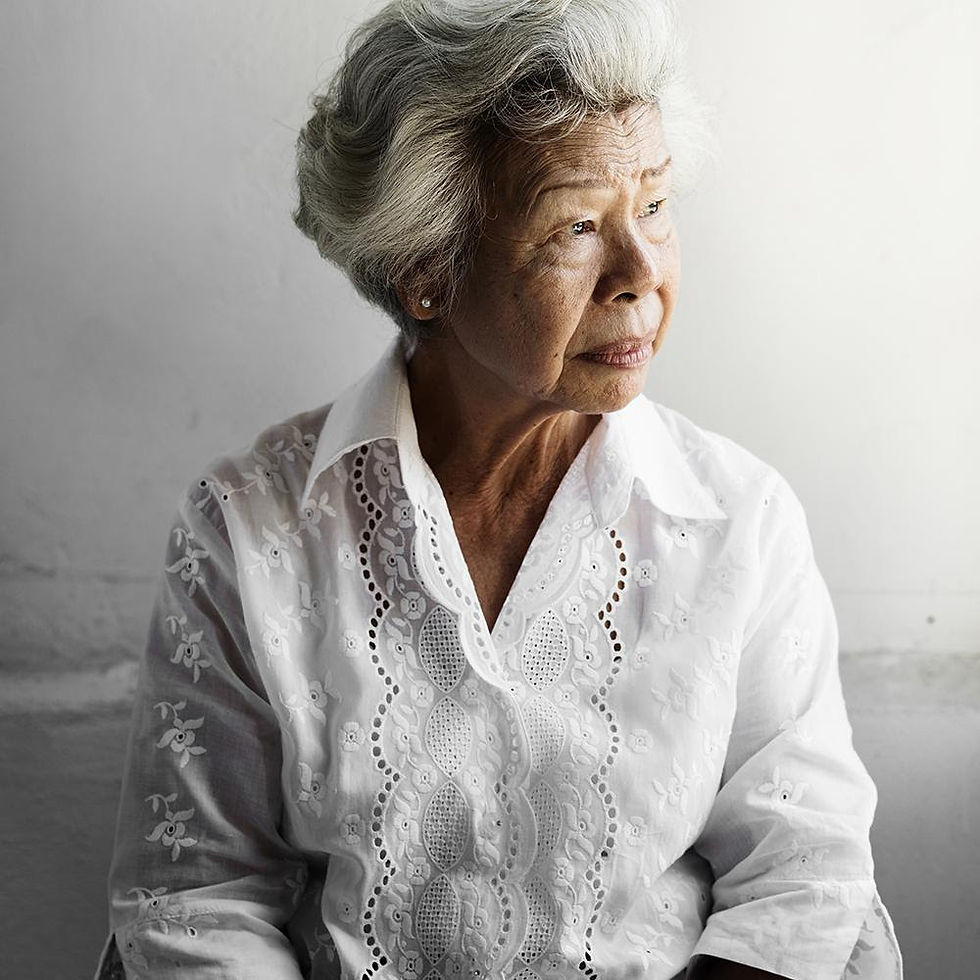Dementia Series, Ch. 3 Part 2 & 3 | Navigating Dementia Behaviors
- Laura Cassell

- Aug 23, 2020
- 3 min read
Dementia behaviors - no matter what behavior - I professionally recommend to keep things as simple as possible. From experience, expecting someone with Dementia symptoms to interact with you the same way they did prior Dementia, is unfair and unrealistic. Caregivers cannot stop Alzheimer’s/Dementia changes in their loved ones personality and/or behaviors, but can control their own behaviors and reactions. Also, it's important to highlight the abilities someone with Dementia is capable of comprehending and being successful at - focus on increasing positive experiences for both the person with dementia and yourself.
#2: Keep it Simple
According to The National Institute on Aging, if someone is starting to commonly display out of the ordinary personality/behavior changes it's best to keep things simple. It's recommended to only say one thing at a time to someone with Dementia/Alzheimer's symptoms especially when they are experiencing behaviors.
Read the example scenario below to see how to respond with someone who is anxious and concerned who has Dementia and how not to respond.
Bill's living in a memory care community for 2 years. He's had dementia symptoms for over 5 years. His wife, Kim, was unable to care for him anymore at home because he started exhibiting negative behaviors toward her. His anxiety, depression, wandering and verbal abuse became too much for her to handle physically, emotionally and mentally. She couldn't have family or friends over without him yelling, crying or being at risk to unintentionally, unknowingly harm her, himself or others. She toured many communities and ultimately moved Bill him to an active memory care community near their home.
At the memory care community, Kim attended a caregiver support group hosted by a local Dementia Practitioner. This is where she learned how to have more enjoyable experiences with Bill by learning new dementia care techniques and strategies. Bill would get frustrated and act out towards Kim anytime she asked more than one question at a time. Kim learned now when she visits Bill, to ask one question at a time. Kim has learned to use short, simple sentences and gives Bill enough time to process and respond before answering. Being patient and understanding that Bill's brain isn't working the way it once did - is something she had to learn and accept. This is something many caregivers have to learn through caring for a loved one with Dementia.
KEY TAKEAWAY: You have to learn to meet your loved one where they are. It's important to realize that as Dementia symptoms progress, communicating becomes even more challenging, however recognizing these challenges that come with Dementia will help alter conversations to meet their needs better. According to The Alzheimer's Association and from my experiences, when trying to interact with people with Dementia, staying relaxed and gentle will lead to a better encounter, especially if the person is easily agitated.

#3: Connect by Emotional Interactions
Based on the example with Bill above, Kim learned how successful her interactions were using the technique she learned in her support group, which is connecting to Bill's feelings. She would now rephrase a question in a statement, i.e.,"You seem tired" - instead of "Are you tired?"
Kim learned by keeping her encounters with her husband simple and emotion based, Bill's behaviors decrease. Even though Kim wishes Bill could be back at home with her, his dementia symptoms have severely worsened and now sadly he doesn't know who she is or how to do things for himself. Kim is glad he could be well-taken of in a safe environment and then she could have the hip surgery she's been needing for years and heal herself, too.
From Kim's encounter as a caregiver for her husband, she learned what her husband hasn't fully lost and what he is still capable of doing. What isn't gone, is his intuition on how to respond to feeling emotions and moods. Did you know... Dementia individuals still have the intuition to pick up on others' moods and emotions? As a spousal caregiver and as companions, Kim/memory care staff to recognize this impairment and alter her/their moods as needed. Someone with Dementia doesn't have the tools to change their situation - but we do. We have to learn to communicate with our hearts, emotions and touch, rather than words.
The TRUTH about this situation is that if we are the informal caregivers, professionals, family/friend and we are helping someone with dementia - WE HAVE TO CHANGE. A person with Dementia CAN'T change the way he or she is or how they react. We have to change our reactions to any environment or situation to their everyday reality and not our own.
Are you a caregiver? More professional tips coming in the next few blog posts. Any suggestions on tips for caregivers of loved one's dementia behaviors, please message or email me. I am happy to share your proven techniques with this blog audience.

Laura Cassell, CDP
Gerontologist and Dementia Practitioner
Pearl Care Solutions & Senior Care Authority-Gulf Coast




Comments